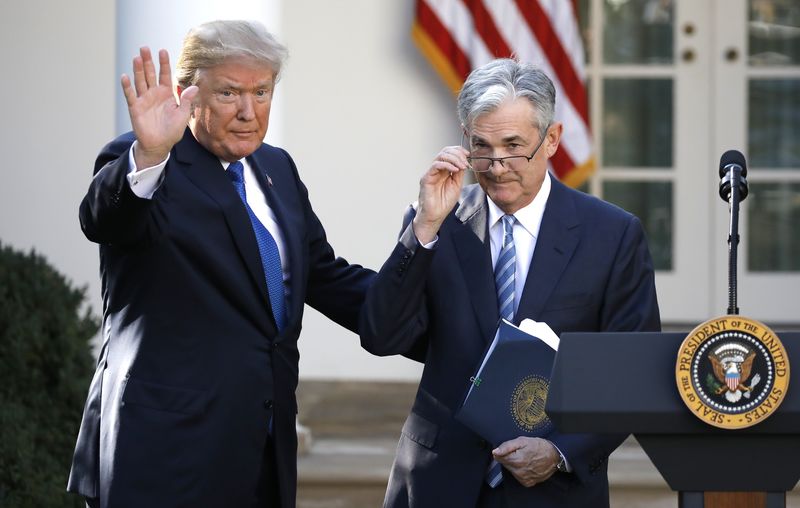By Geoffrey Smith
Investing.com -- Gold prices rose on Tuesday as President Donald Trump upped the pressure on the Federal Reserve to cut interest rates below zero, something that would eradicate the historic yield advantage of short-dated U.S. Treasury bonds.
Treasuries are typically the preferred haven asset for many investors and have always carried a positive yield. If, however, the U.S. Federal Reserve were to follow the Bank of Japan and European Central Bank in cutting rates below zero, then Treasury yields would likely follow. Yields on 2-year German sovereign debt, for example, are currently around -0.75%.
By 11:40 AM ET (1540 GMT), gold futures were up 0.8% at $1,712.00 a troy ounce, while spot gold was up 0.6% at $1,706.95 an ounce.
Silver futures were likewise up 1.4% at $15.83 an ounce, while platinum futures were flat at $781.00.
“As long as other countries are receiving the benefits of Negative Rates, the USA should also accept the “GIFT”. Big numbers!” Trump tweeted. Treasury yields responded by falling all along the curve, although they remain comfortably off the lows they hit last week. The dollar index also fell by 0.4% to trade back below 100. A weaker dollar is usually supportive for gold prices.
However, Trump faces seemingly united opposition to negative interest rates from the Federal Reserve, many of whose top brass have come out against it in the last 48 hours.
“I would be against negative interest rates,” Dallas Fed President Robert Kaplan told CNN International. “I’m a skeptic whether negative interest rates would actually be helpful, or whether the help would be outweighed by the harm it would do to the financial sector.”
Either way, there was fresh evidence Tuesday that the first impact of the pandemic on prices will be deflationary. Consumer prices fell by 0.8% in April, after a 0.4% drop, while core consumer prices fell for a second-straight month for only the second time in 63 years.
“This reinforces our view that the scale of demand destruction in the economy means inflation is not going to be an issue for a long time,” ING Chief International Economist James Knightley said in a research note.
